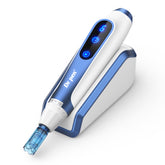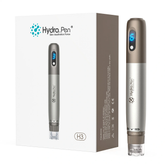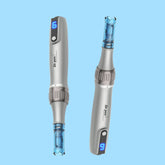The body naturally produces hyaluronic acid, which helps lubricate our tissues. It plays a role in skin health, wound healing, bone strength, and many other other bodily systems or functions.
Hyaluronic acid, also known as hyaluronan, is a clear, gooey substance that is naturally produced by your body.
The largest amounts of it are found in your skin, connective tissue and eyes.
Its main function is to retain water to keep your tissues well lubricated and moist.
Hyaluronic acid has a variety of uses. Many people take it as a supplement, but it’s also used in topical serums, eye drops and injections.
Here are 7 scientifically backed benefits of taking hyaluronic acid.
1. Promotes Healthier, More Supple Skin
Hyaluronic acid supplements can help your skin look and feel more supple.
Roughly half of the hyaluronic acid in your body is present in your skin, where it binds to water to help retain moisture (1Trusted Source).
However, the natural aging process and exposure to things like ultraviolet radiation from the sun, tobacco smoke and pollution can decrease its amounts in the skin.
Taking hyaluronic acid supplements may prevent this decline by giving your body extra amounts to incorporate into the skin .
Doses of 120–240 mg per day for at least one month have been shown to significantly increase skin moisture and reduce dry skin in adults .
Hydrated skin also reduces the appearance of wrinkles, which may explain why several studies show that supplementing with it can make skin appear smoother .
When applied to the surface of the skin, hyaluronic acid serums can reduce wrinkles, redness and dermatitis.
Some dermatologists even inject hyaluronic acid fillers to keep skin looking firm and youthful .
2. Can Speed Wound Healing
Hyaluronic acid also plays a key role in wound healing.
It’s naturally present in the skin, but its concentrations increase when there is damage in need of repair.
Hyaluronic acid helps wounds heal faster by regulating inflammation levels and signaling the body to build more blood vessels in the damaged area.
Applying it to skin wounds has been shown to reduce the size of wounds and decrease pain faster than a placebo or no treatment at all .
While the research on hyaluronic acid serums and gels is promising, there has been no research to determine whether hyaluronic acid supplements can provide the same benefits.
However, since oral supplements boost the levels of hyaluronic acid found in the skin, it’s reasonable to suspect they may provide some benefit.
3. Relieve Joint Pain by Keeping Bones Well Lubricated
Hyaluronic acid is also found in the joints, where it keeps the space between your bones well lubricated
When the joints are lubricated, the bones are less likely to grind against each other and cause uncomfortable pain.
Hyaluronic acid supplements are very helpful for people suffering from osteoarthritis, a type of degenerative joint disease caused by wear and tear on the joints over time.
Some research shows that pairing oral hyaluronic acid supplements with injections can help extend pain-relieving
SUMMARY
Hyaluronic acid supplements are effective at reducing joint pain in people with osteoarthritis. Injections can also be used but may come with risks.
4. Soothe Acid Reflux Symptoms
New research shows hyaluronic acid supplements may help reduce symptoms of acid reflux.
When acid reflux occurs, the contents of the stomach are regurgitated up into the throat, causing pain and damage to the lining of the esophagus.
Hyaluronic acid may help soothe the damaged lining of the esophagus and speed up the recovery process.
One test-tube study found that applying a mixture of hyaluronic acid and chondroitin sulfate to acid-damaged throat tissue helped it heal much faster than when no treatment was used.
SUMMARY
A combination supplement containing hyaluronic acid and chondroitin sulfate may help reduce the symptoms of acid reflux in some people.
5. Relieve Dry Eye and Discomfort
Approximately 1 out of 7 older adults suffer from symptoms of dry eye due to reduced tear production or tears evaporating too quickly.
Since hyaluronic acid is excellent at retaining moisture, it’s often used to treat dry eye.
Eye drops containing 0.2–0.4% hyaluronic acid have been shown to reduce dry eye symptoms and improve eye health .
Contact lenses that contain slow-release hyaluronic acid are also being developed as a possible treatment for dry eye .
In addition, hyaluronic acid eye drops are frequently used during eye surgery to reduce inflammation and speed wound healing (38Trusted Source, 39Trusted Source).
While applying them directly to the eyes has been shown to reduce dry eye symptoms and improve overall eye health, it is unclear whether oral supplements have the same effects.
6. Preserve Bone Strength
Animal and test-tube research suggests that high doses of hyaluronic acid may help prevent bone loss, but no research has been conducted in humans.
7. Could Prevent Bladder Pain
Approximately 3–6% of women suffer from a condition called interstitial cystitis, or painful bladder syndrome .
This disorder causes abdominal pain and tenderness, along with a strong and frequent urge to urinate .
While the causes of interstitial cystitis are unknown, hyaluronic acid has been found to help relieve the pain and urinary frequency associated with this condition when inserted directly into the bladder through a catheter .





















